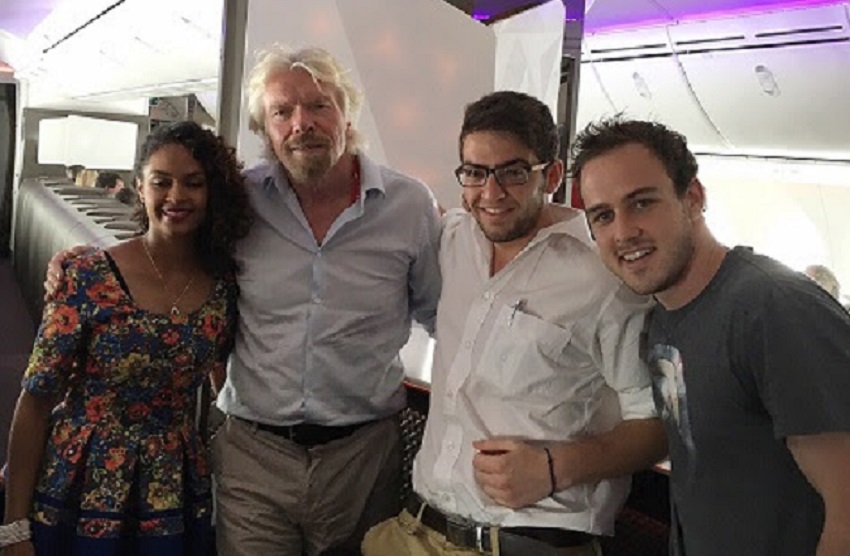South African startup DroneSnap is pioneering the use of drones in aerial imaging on the continent, saving clients money by offering a service 70 per cent cheaper than using helicopters.
DroneSnap began life in May 2014 as a simple aerial photography company, providing events and real estate agents with drone photography and videography.
However, it was not long before co-founders Mario Demetriou and Jason van den Berg discovered the limitations of the business.
“After doing this for around a year, we realised that our clients were requesting jobs all over South Africa, but were unhappy with the additional travel costs involved for us to travel out to provide the service,” Demetriou told Disrupt Africa. “We realised that the business wouldn’t be scalable unless we adapted it somehow.”
In July of 2015, the pair decided the best solution to solve the problem of additional travel costs was to partner with drone operators across South Africa.
“We would refer business to them and, in return, we would charge a commission on their fee. This is when we began building an online platform for drone operators to register and list their services,” Demetriou said.
This pivot led to DroneSnap, an online platform that provides on-demand, high quality, professional drone operators for all forms of aerial imaging in the mining, construction, property and filming industries.
“There are so many applications for drones and DroneSnap has a multitude of solutions for a vast variety of industries,” Demetriou said.
“What makes us different is our ability to utilise drones to provide much more affordable and better quality solutions when compared to the aerial imaging provided by helicopters.”
More affordable, in fact, to the tune of 70 per cent, with DroneSnap now having over 80 vetted and qualified drone pilots registered across South Africa.
“We’ve harnessed the sharing economy business model to be able to outsource the aerial imaging service to drone operators that are situated all across South Africa. This allows us to cut down on travel costs as well as provide a professional and on-demand service,” said Demetriou.
It is only in the last two years that drones have become a viable alternative to the expensive helicopters for aerial imaging. Demetriou said the benefits – other than cost – are multiple.
“They’re compact, they can carry high quality cameras, and they’re slightly easier to operate than a helicopter,” he said.
Drones do have their own complications, however.
“Hiring a drone operator means that you’d need to know what drones are capable of, which drone is the right one for the job, and you might struggle finding a drone operator in your specific area,” Demetriou said.
“We found that there is a gap for professionals in the unmanned aerial vehicle (UAV) industry. The market needs a simple solution.”
This solution, he believes, is DroneSnap.
“Our drones are much more agile than helicopters, and we simplify drones. We have operators from all over South Africa registered with us. We know the closest operator in your area. We know what drone equipment he has. And we know what he is capable of,” said Demetriou.
The startup is completely self-funded, a fact Demetriou feels has been beneficial.
“Because we didn’t have access a lot of capital, we found ways to get around it. It took a lot of discipline, hard work and planning, but we didn’t need a lot of money to set up our company,” he said.
In November 2015, the company was given the opportunity to meet and get mentored by Sir Richard Branson after winning the Dreamtrepreneur competition hosted by Virgin Atlantic and the British Council.
“It was great validation for our business and exposed us to such amazing experiences. Part of the prize included two trips to London to experience the Tech City startup scene and to network with some unbelievably talented entrepreneurs,” said Demetriou.
DroneSnap currently operates in the Southern African market, primarily in South Africa but also in the likes of Zimbabwe, Namibia and Tanzania. Demetriou said the plan is to secure brand awareness in the region and grow from that base.
“There are many developing markets that could benefit from our service and once we’ve got all the aspects of our business perfected, we’ll either scale the DroneSnap platform internationally, or we’ll franchise our business out,” he said.
Regulatory issues have hindered the development of the startup, but van den Berg said the company managed to battle through them.
“Now more and more pilots are getting licensed and fully compliant, which is great news for us,” he said.
“When we started out in the drone industry there were absolutely no regulations, rules or guidelines for operating drones commercially. On July 1, 2015 the regulations came into effect, and the whole drone industry in South Africa went from completely unregulated to a little over-regulated in a very short space of time.”
This meant things were tough for a while, as the South African Civil Aviation Authority (CAA) took time to figure out which flight schools to approve for the drone pilot licence and how instructors should assess companies.
“We’re really glad we chose to push through, it really paid off. We now help out our drone pilots and provide the direction they need in order to become compliant,” said van den Berg.


